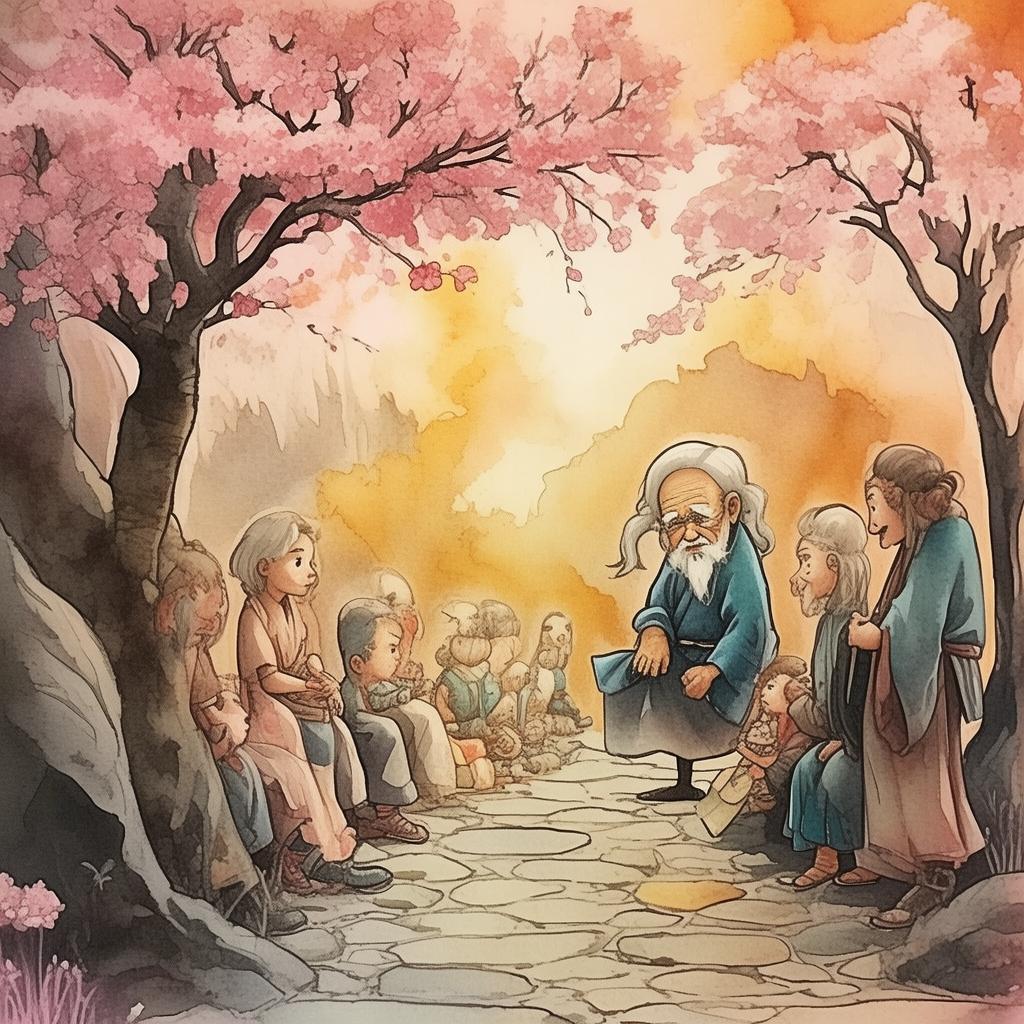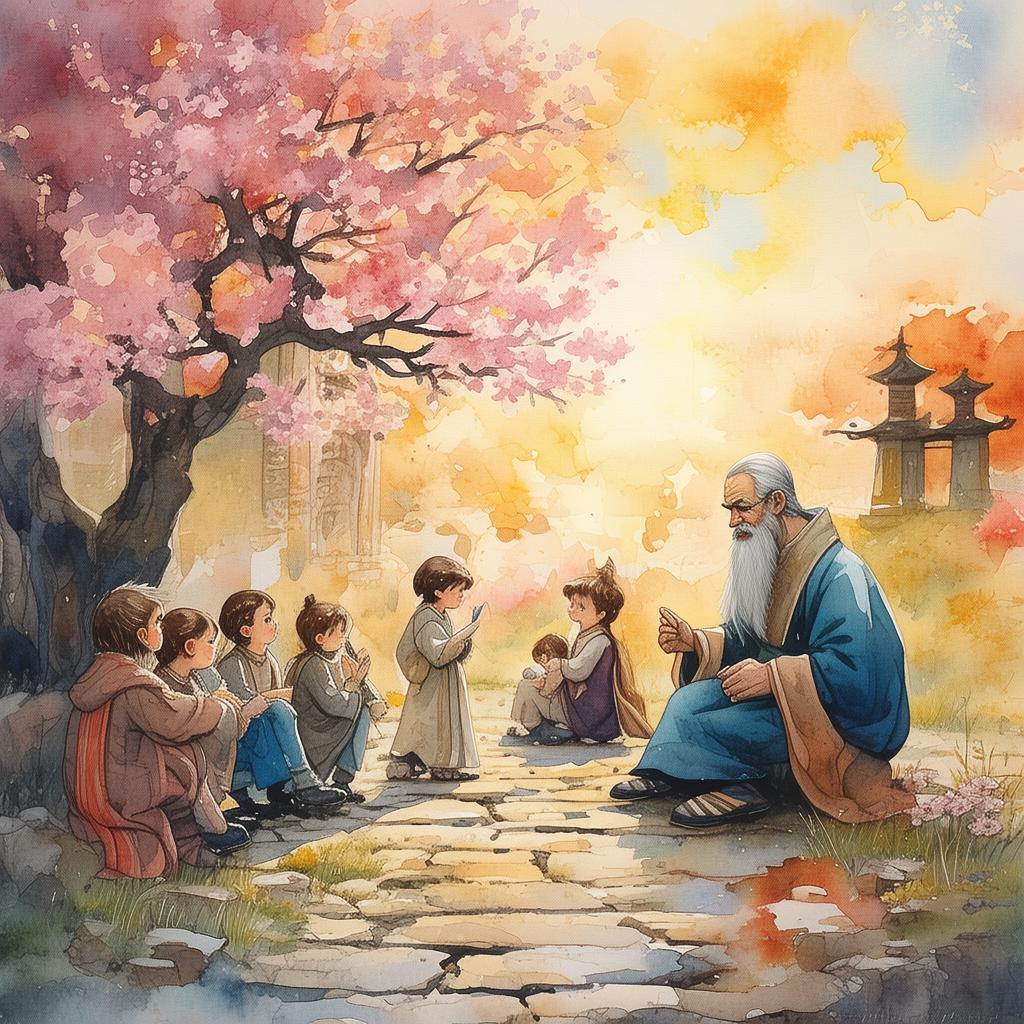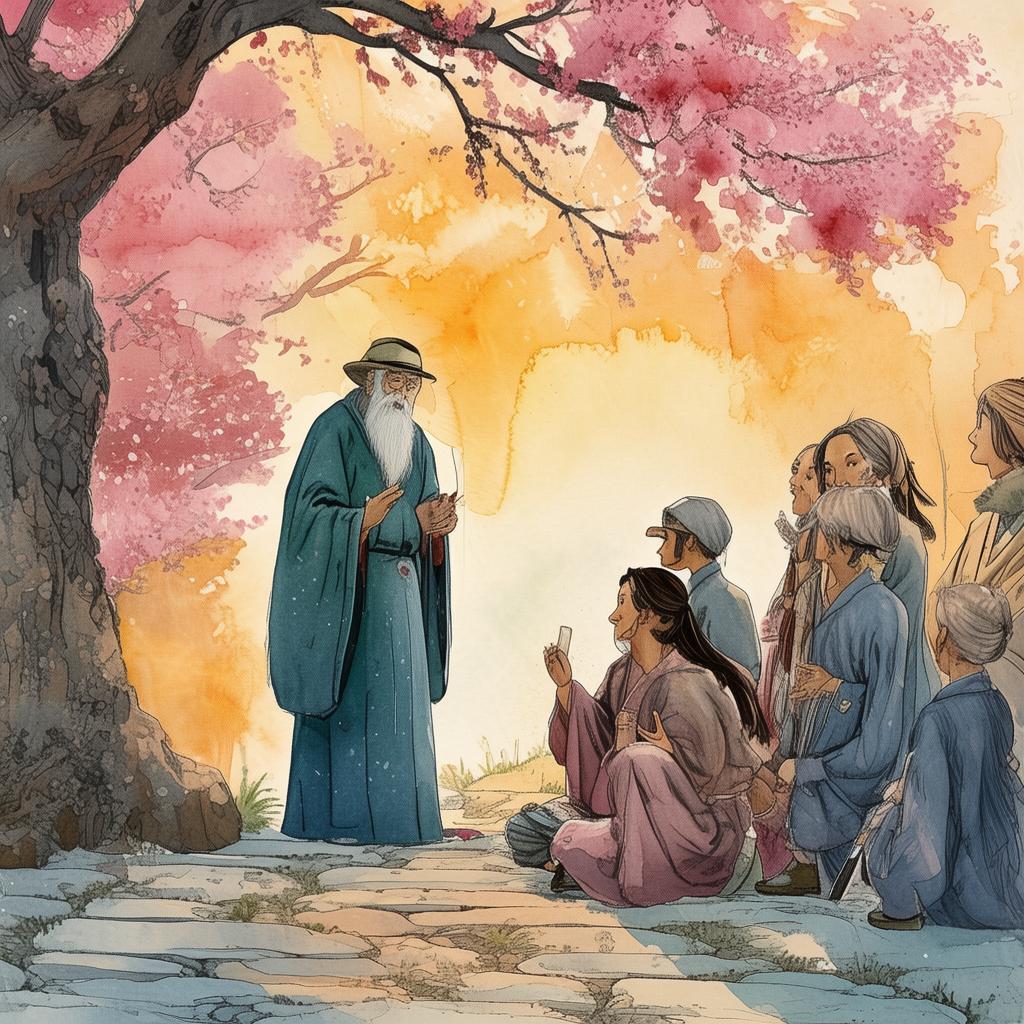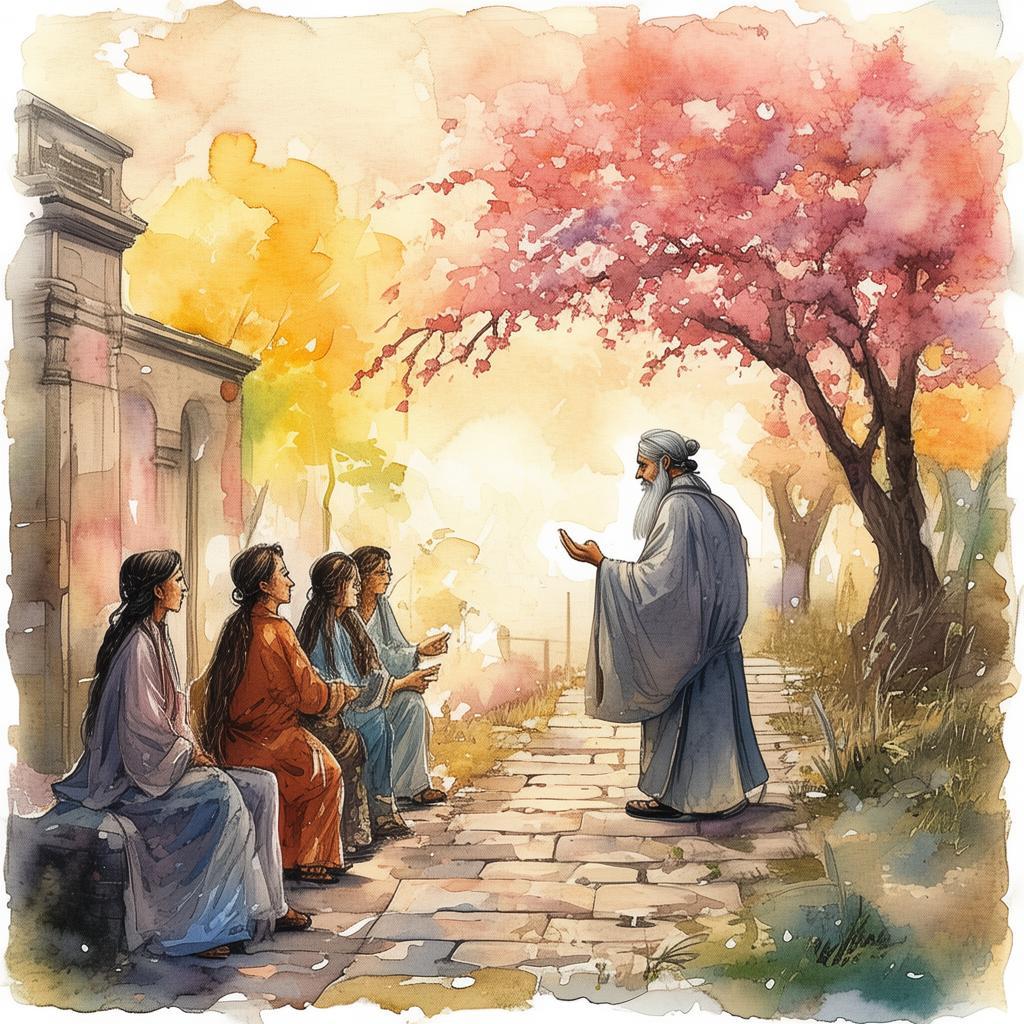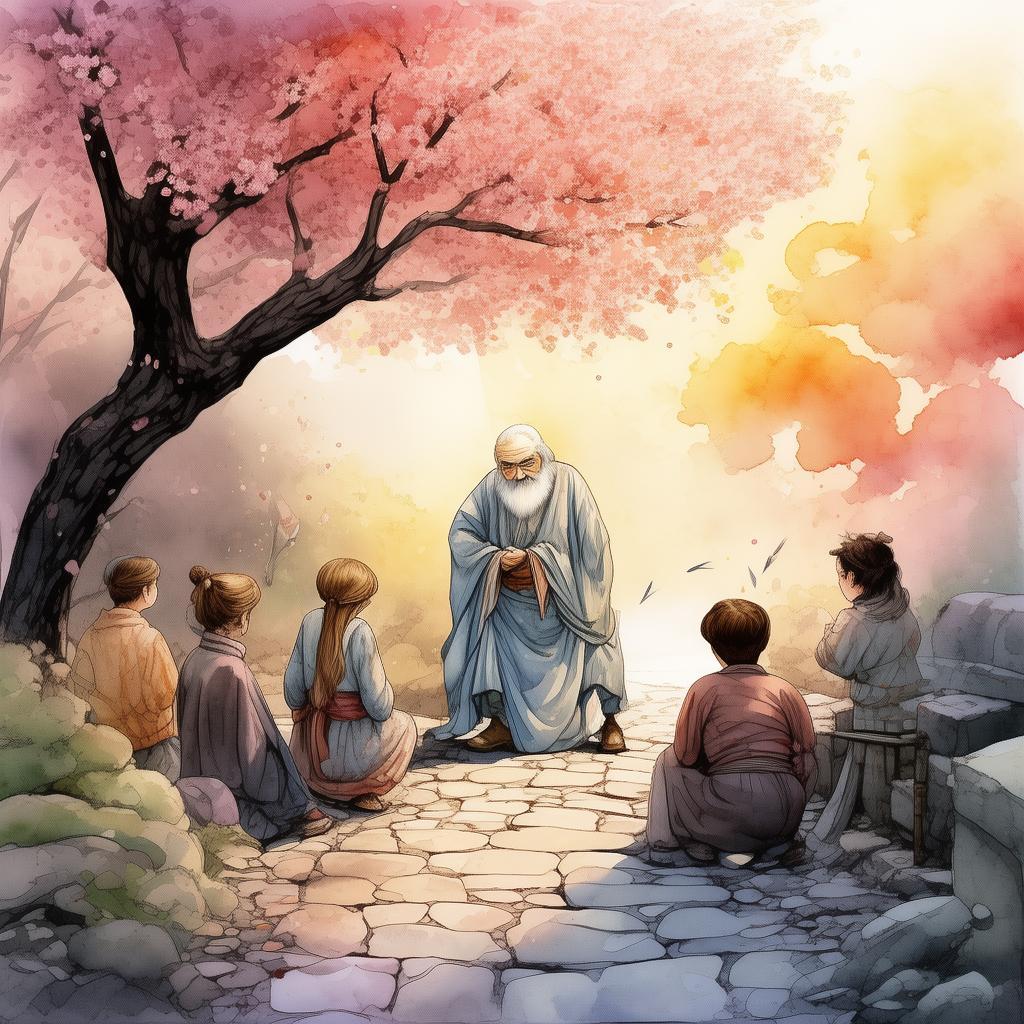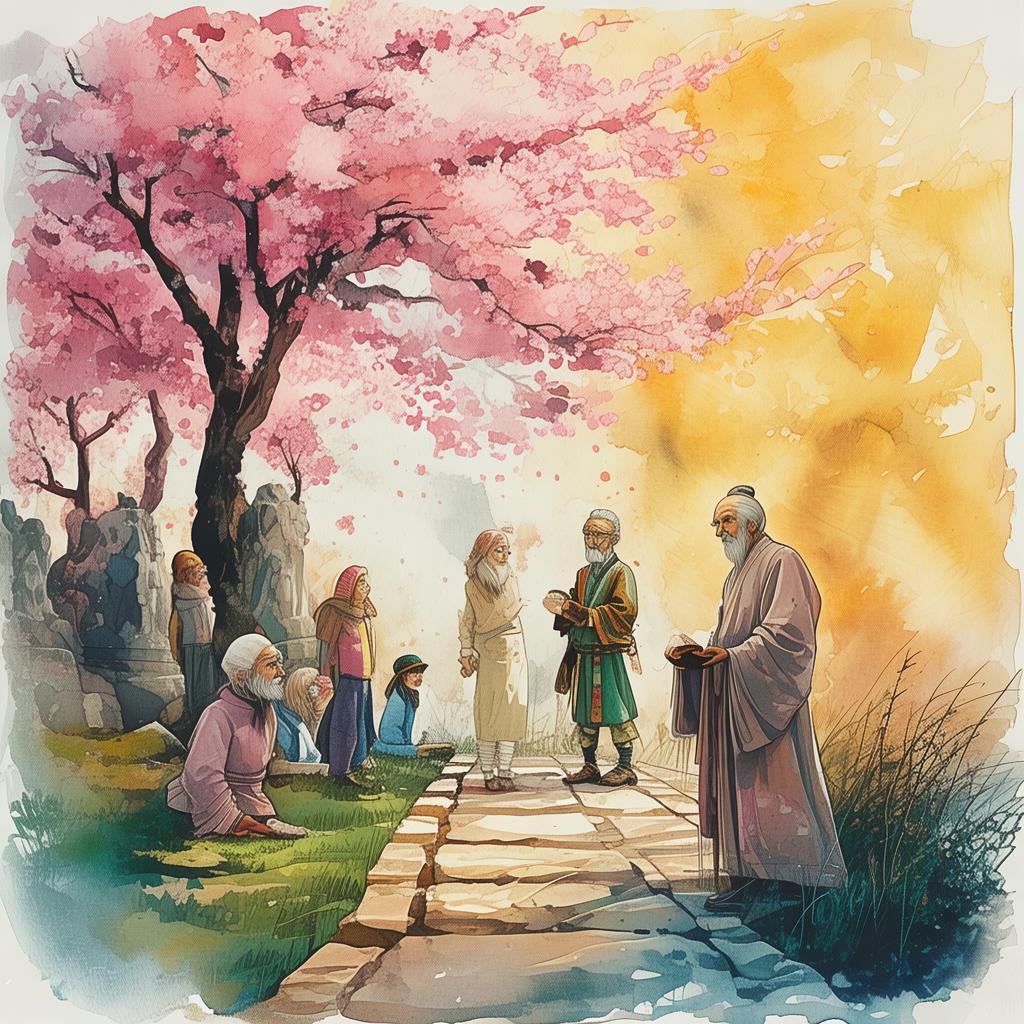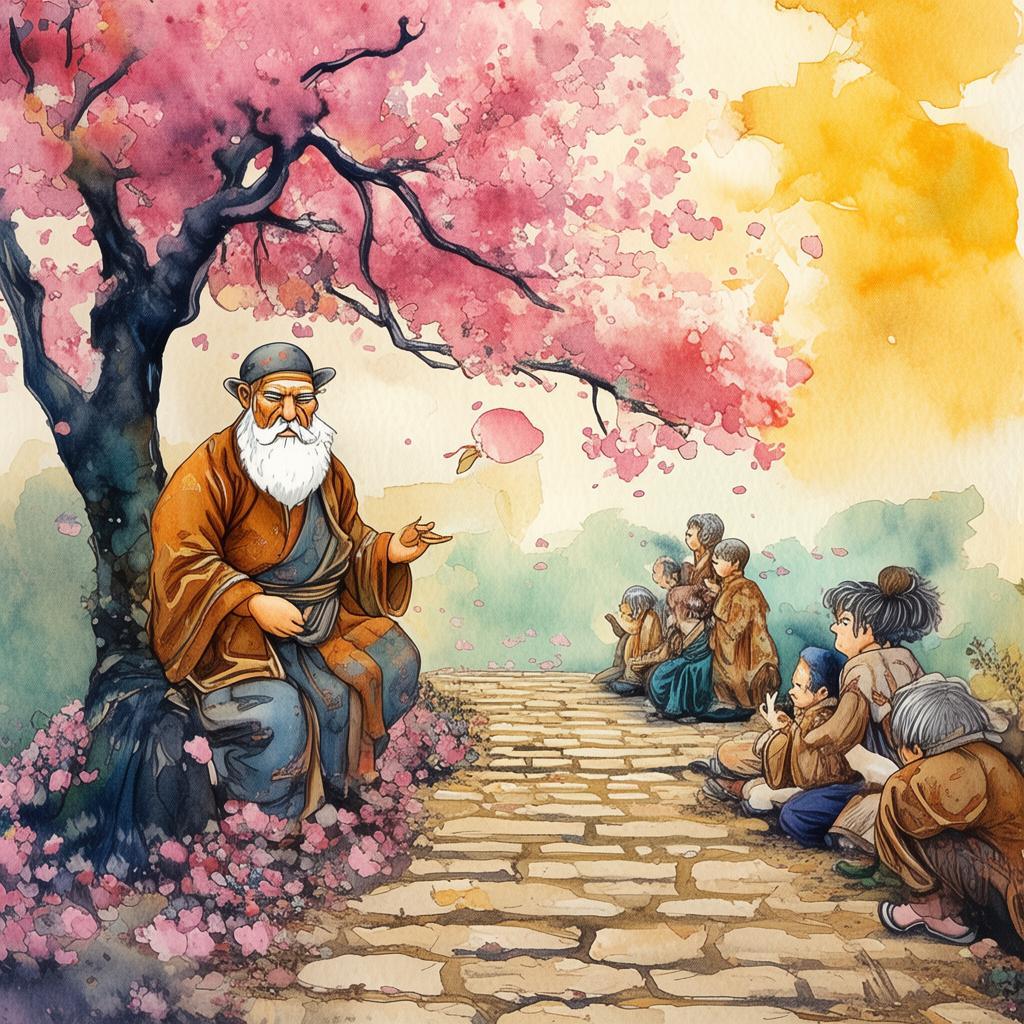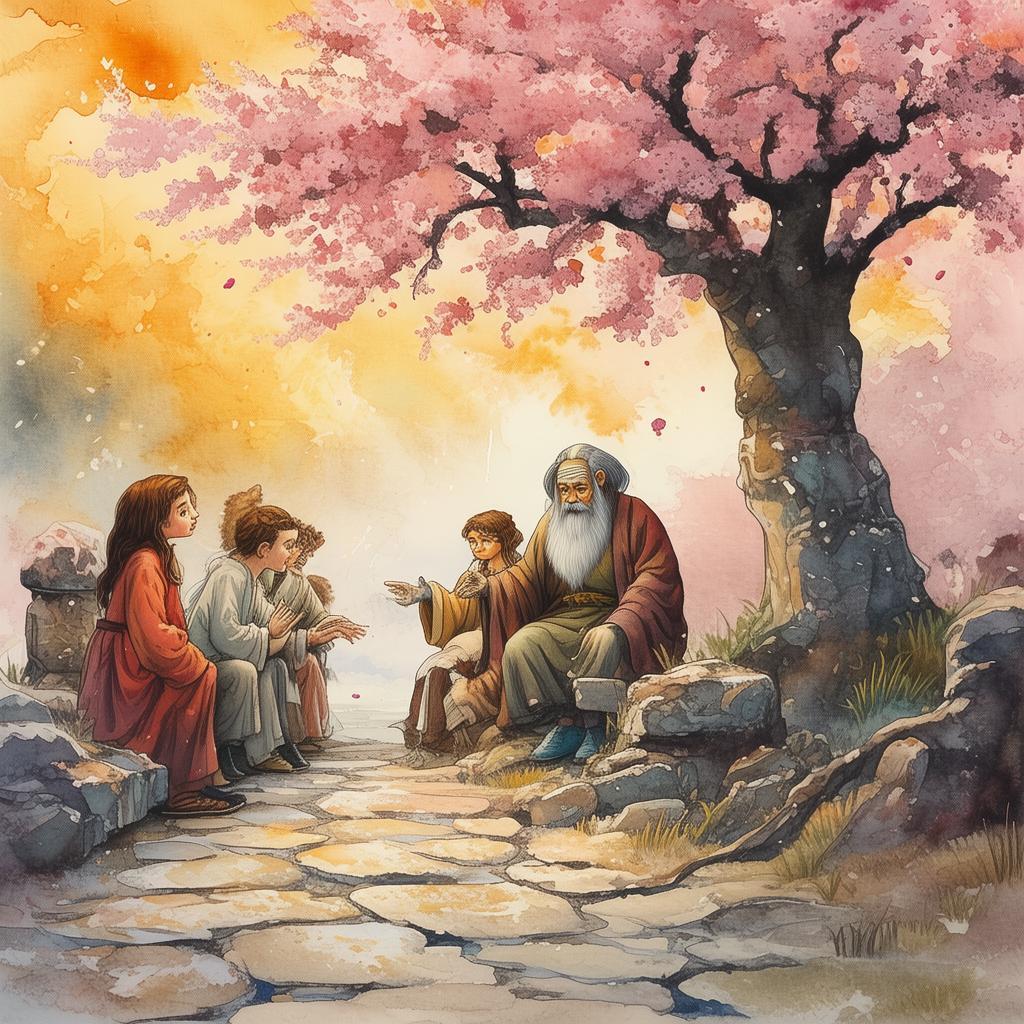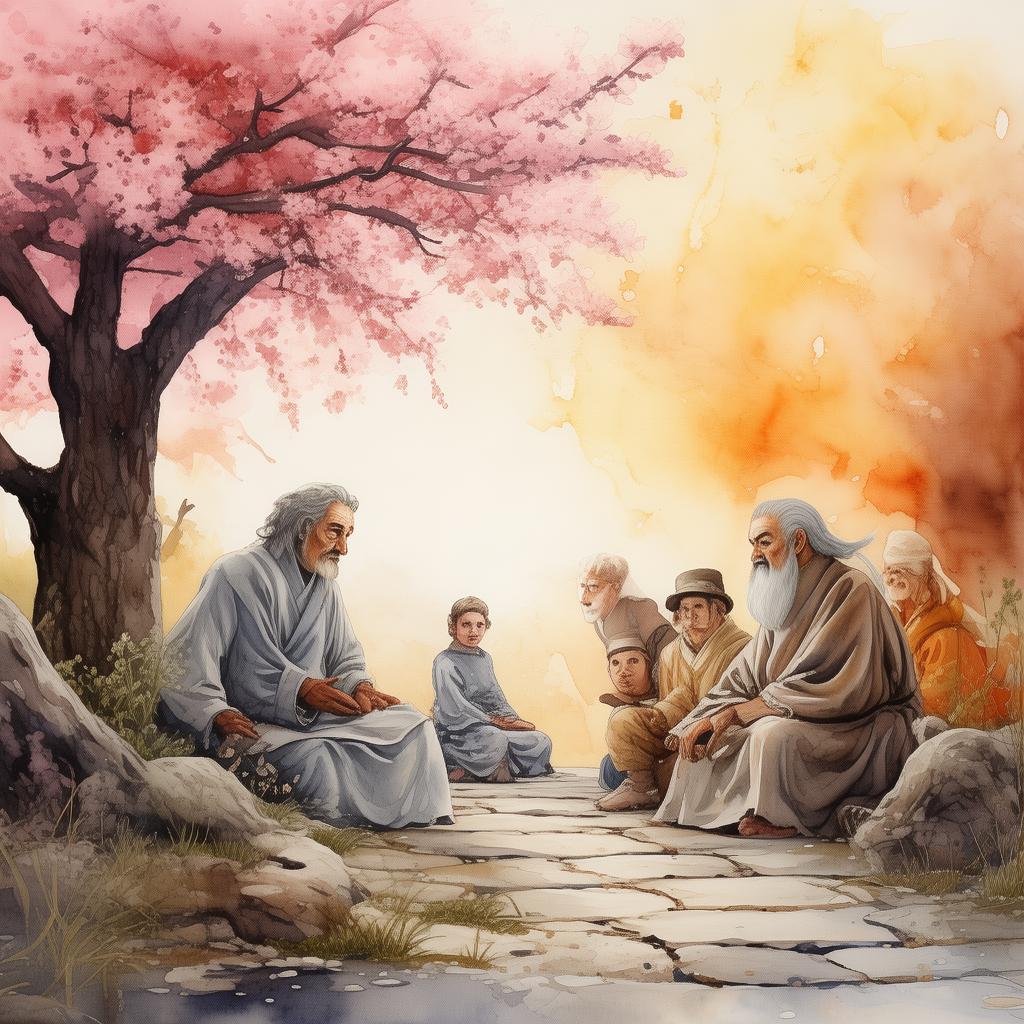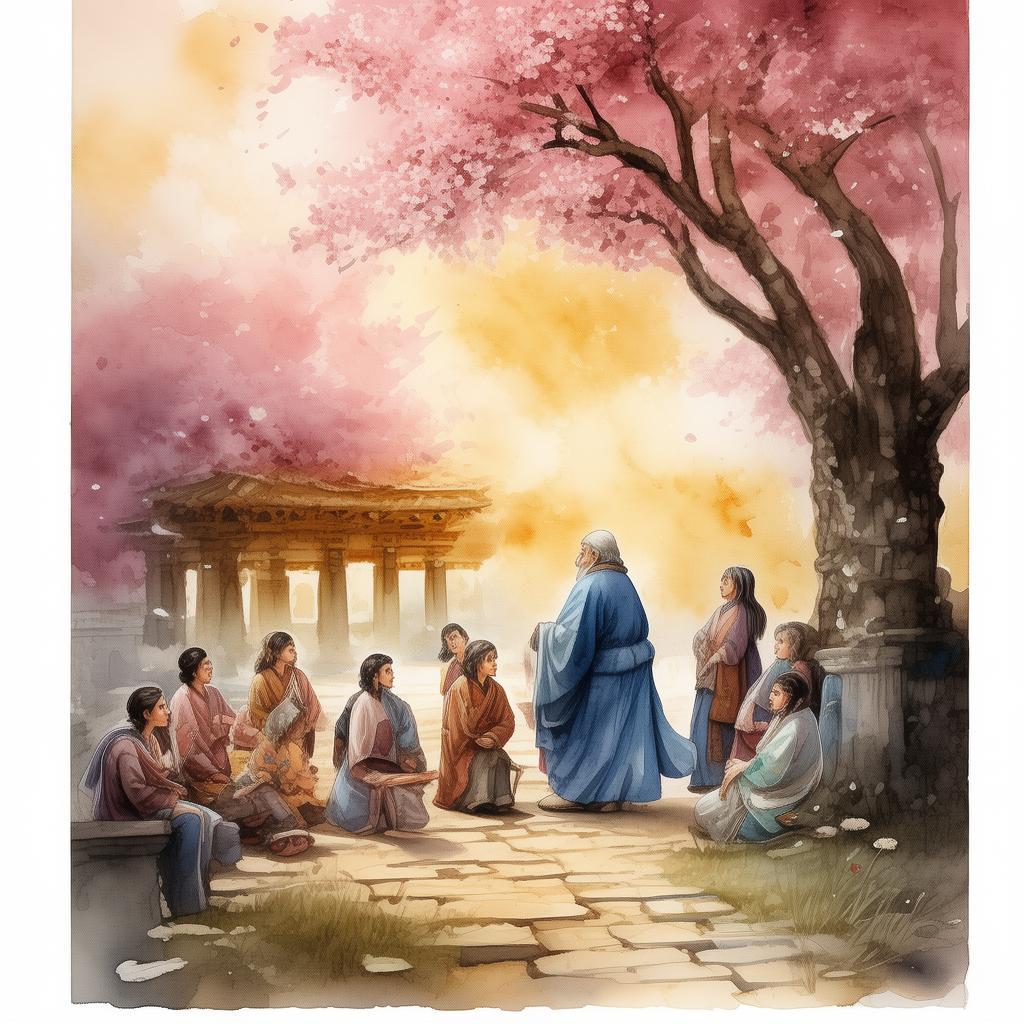From Scholar's Fall to Zen's Rise: The Parable of the Empty Cup
In the ancient land of Wu, there was a renowned scholar named Ming. Ming was a man of great intellect and vast knowledge, but his pride was as large as his intellect. He had spent his life studying the complexities of the world, seeking answers to life's deepest questions. However, his journey was fraught with challenges, as he was often met with scorn and skepticism from those who could not grasp the depth of his knowledge.
One day, Ming encountered a Zen master named Huaihai, a wise and humble man who had renounced the pursuit of knowledge for the sake of enlightenment. Huaihai noticed Ming's intellectual rigidity and decided to teach him a lesson that would change his life forever.
Huaihai held up an empty cup and said, "Ming, this cup is empty. It can hold water, but only if you empty it first." Ming, confused and proud, replied, "But master, the cup is already empty!" Huaihai smiled and said, "Exactly, Ming. The cup is empty, and it is ready to be filled. Your mind is like this cup; it is full of preconceived notions and biases. To truly learn and grow, you must empty your mind of these."
Ming, still not fully understanding, asked, "How can I empty my mind of all my knowledge and wisdom?" Huaihai responded, "By embracing simplicity and vulnerability. True wisdom does not come from the accumulation of knowledge, but from the willingness to learn and change."
As days turned into weeks, Ming began to follow Huaihai's teachings. He learned to listen to others without judgment, to question his own assumptions, and to appreciate the world around him without the filter of his intellect. He began to see the world with fresh eyes, as if he were seeing it for the first time.
One evening, as they sat under the moonlit sky, Huaihai asked Ming, "What have you learned from this journey?" Ming replied, "I have learned that true wisdom comes from simplicity and vulnerability. I have learned that knowledge is not the end goal, but the means to an end. I have learned that to truly understand the world, I must be willing to let go of my preconceived notions and embrace the unknown."
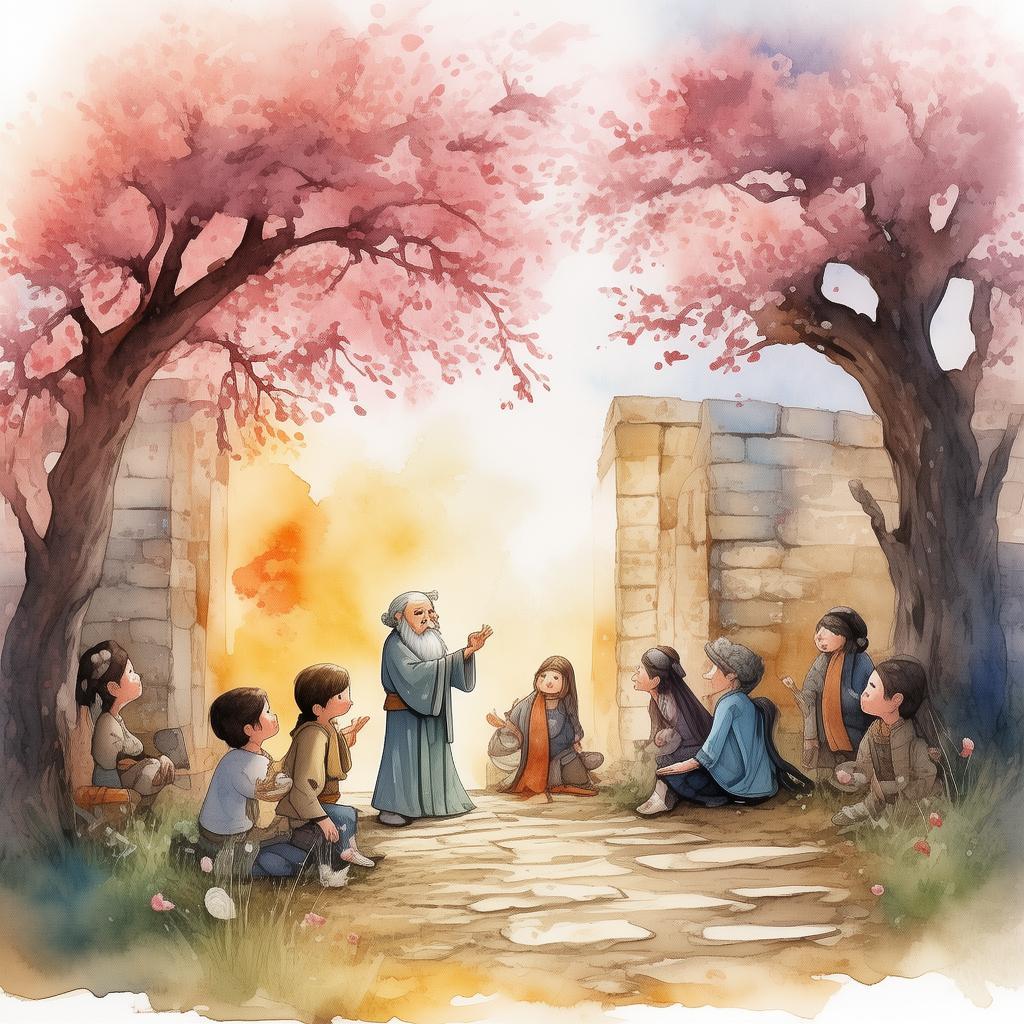
Huaihai nodded, "And what have you learned about the empty cup?" Ming thought for a moment and said, "I have learned that the empty cup is not an absence of water, but a readiness to receive it. Just as my mind is now empty, it is ready to be filled with new insights and experiences."
As Ming continued on his path, he found that his interactions with the world were transformed. He was no longer judgmental, but open and accepting. He was no longer prideful, but humble and grateful. He had learned the power of the empty cup, a metaphor for the state of mind required for true enlightenment.
Years passed, and Ming became known as a wise and compassionate man. He taught others the lessons he had learned from Huaihai, and his teachings spread far and wide. But the true mark of his enlightenment was not in the knowledge he imparted, but in the way he lived his life, with an open heart and an empty cup, ready to receive the wisdom of the world.
In the end, Ming realized that the journey to enlightenment was not about accumulating knowledge, but about letting go of what one already knows. It was about embracing the simplicity and vulnerability that comes with the empty cup, a symbol of the endless possibilities that lie beyond the boundaries of one's own understanding.
✨ Original Statement ✨
All articles published on this website (including but not limited to text, images, videos, and other content) are original or authorized for reposting and are protected by relevant laws. Without the explicit written permission of this website, no individual or organization may copy, modify, repost, or use the content for commercial purposes.
If you need to quote or cooperate, please contact this site for authorization. We reserve the right to pursue legal responsibility for any unauthorized use.
Hereby declared.
